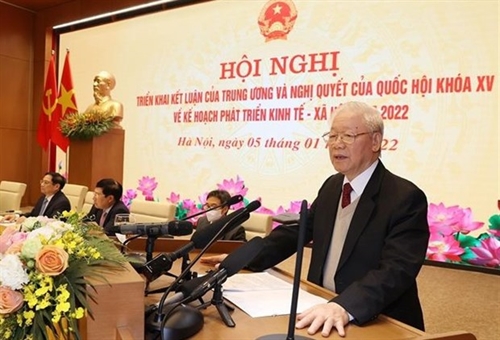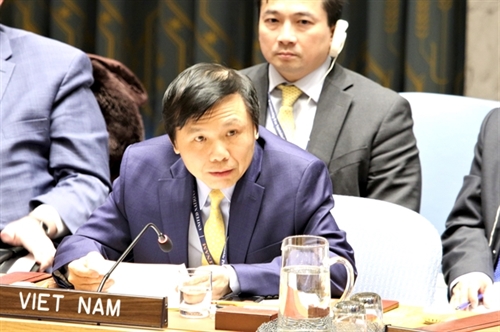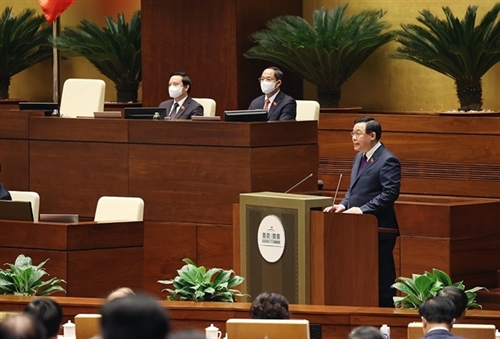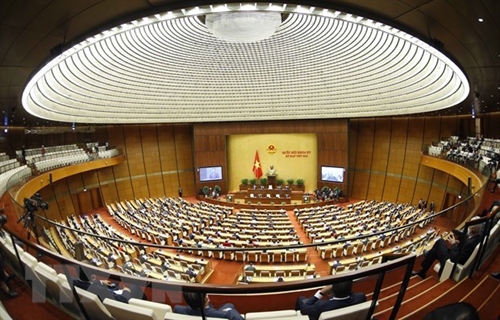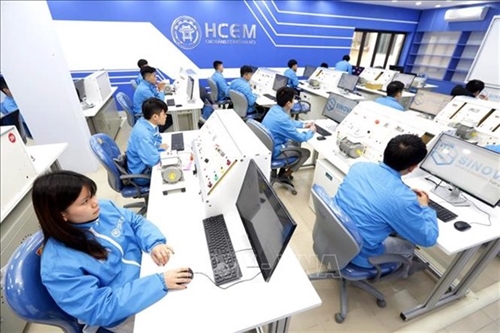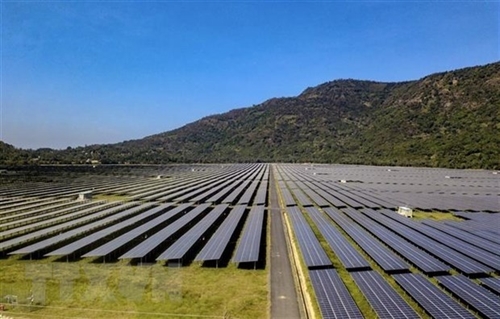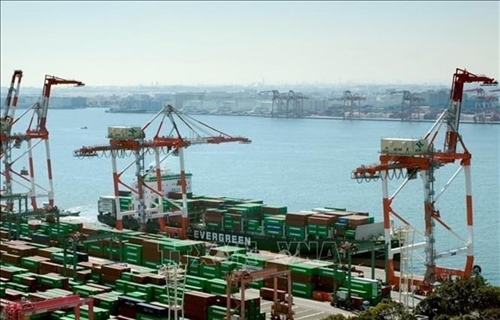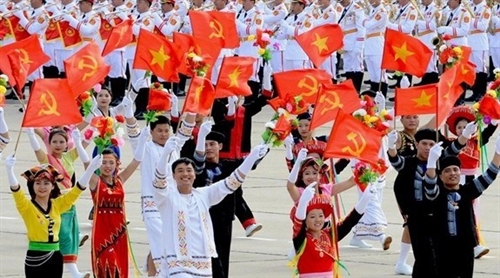Changes to the Investment Law and Electricity Law were the focus of the National Assembly’s extraordinary meeting in Hanoi on January 6.
They were part of a draft Law on amendments and supplements to eight sets of law, which was discussed in the morning.
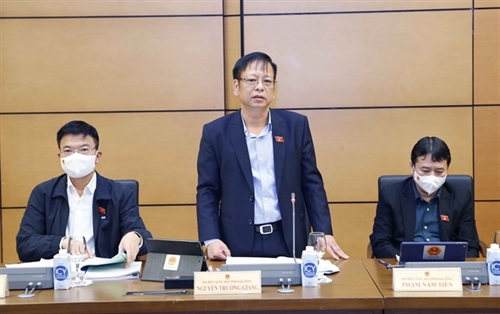 |
| NA deputy Nguyen Truong Giang from the Central Highlands province of Dak Nong discusses the amendments to the Investment Law at the NA's extraordinary meeting__Photo: Doan Tuan |
The draft Law aims to update point c, clause 1, Article 75 of the Investment Law, which regulates the types of land that investors are allowed to use to build commercial houses.
It also plans to amend clause 4, Article 4 of the Electricity Law, which regulated the State’s monopoly on operating the electric power transmission grids that it built.
In terms of the Investment Law amendment, according to the draft Law, investors will have the right to use non-residential land for these commercial projects instead of only residential land, on a condition that it is in line with the authorities’ plan on land use.
Discussing the change, deputy Nguyen Truong Giang from the Central Highlands province of Dak Nong said it will enable investors to build more commercial houses, since the authorities can assign non-residential land to them without them having to bid for the rights to use it.
However, this may lead to corruption and only serve the benefits of certain groups, he said.
Addressing this problem, deputy Doan Thi Thanh Mai from the northern province of Hung Yen said stricter regulations need to be issued to better manage land and avoid abundant, unplanned housing projects.
Specifically, authorities need to regulate how much non-residential land an investor is allowed to use for such projects. “Some investors have been collecting agricultural land. If we don’t have strict regulations, these lands will be converted to non-residential land and used to build commercial houses, and they will be very hard to manage,” she said.
Mai added that although investors are allowed to carry out such conversion, according to the draft Law, they can only do that on the condition that the lands are part of the district-level authorities’ annual land use plan. This may also lead to corruption as the authorities may take bribes and modify the plan in the investors’ favor.
“Urban land management monitoring in the previous tenure has shown some land was converted 13 times to serve investors’ benefits, which changed the entire original land use plan and left substantial consequences on society and traffic infrastructure,” she said.
The deputies agreed that to enable investors while still maintaining effective, transparent land use, the Investment Law should allow them to convert and use non-residential land, but on the condition that the land is eligible for conversion in accordance with the Law on Land, and approved for such conversion by authorized agencies.
In terms of the Electricity Law, the amendment aims to call for investment from different sectors to improve the grids to better serve the people’s electricity demand.
Deputy Giang said it should propose clearly what needs investment and funding from non-public sectors, and be presented for review by the Government. The impact report should be done more thoroughly, he said.
Minister of Industry and Trade Nguyen Hong Dien said no matter which sector the investors come from, they will all need to abide to regulations on transmission grid investment, construction and operation and all safety standards, which will be defined by the Ministry of Industry and Trade and the power company Vietnam Electricity (EVN).
Minister of Justice Le Thanh Long said this is a difficult, unprecedented amendment that involves several ministries.
Amendments to the other six laws were also discussed at the meeting. They were on the Law on Public Investment, Law on Public-Private Partnership, Bidding Law, Enterprise Law, as well as the Law on Special Consumption Tax, and the Law on Enforcement of Civil Judgments.- (VNS/VLLF)
